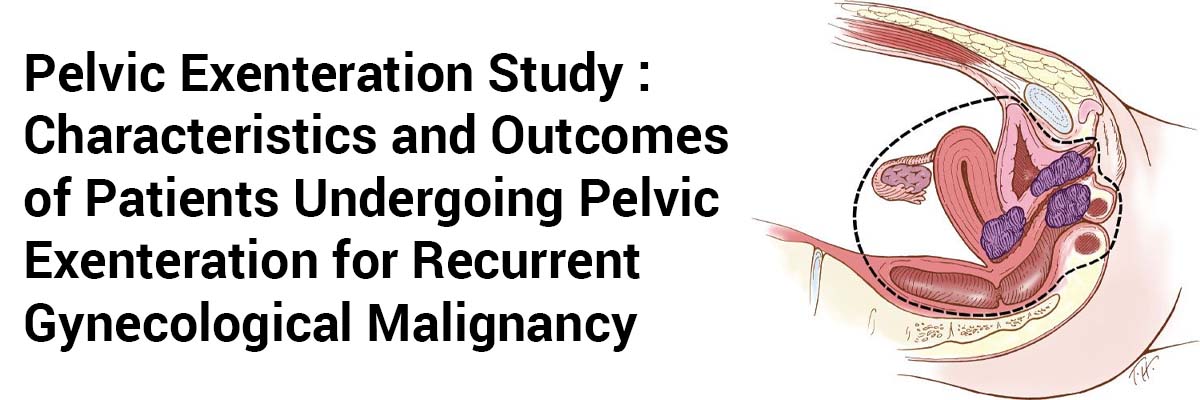
 IJCP Editorial Team
IJCP Editorial Team
Pelvic Exenteration Study: Characteristics and Outcomes of Patients Undergoing Pelvic Exenteration for Recurrent Gynecological Malignancy
ABSTRACT
Pelvic exenteration is an ultra-radical surgical procedure that requires an en-bloc removal of some or all pelvic structures. The major indication for pelvic exenteration is a recurrent malignant pelvic tumor that has not metastasized outside the pelvis or for primary locally advanced pelvic cancer. Gynecologic pelvic exenteration has been most commonly used for recurrent cervical cancer. It may also be used for recurrent vulvar, vaginal, endometrial, ovarian cancer and pelvic sarcoma.
This study aims to describe the characteristics and outcomes of patients who underwent pelvic exenteration for recurrent gynecological malignancy.
The methodology involves the retrospective review of the patients who underwent pelvic exenteration between Jan 2007 and July 2016 in the Saskatoon Health Region. The data collected were analyzed and patient’s demographics were evaluated with the help of basic descriptive statistics. Surgical variables and other parameters such as diagnosis, treatments and complications were also taken into consideration.
It was found out that, the patients undergoing pelvic exenteration had an average age of 69 years (range, 35 to 96 years), and an average BMI of 35.4. Complete, anterior, and posterior pelvic exenteration constituted 71%, 21%, and 8% of cases, respectively. Postoperative complications, both short and long-term, were common for patients undergoing pelvic exenteration.
To summarize, pelvic exenteration is the most radical and the only optimal surgical treatment in the case of central recurrent gynecological malignant tumors. It results in significant progression-free and long-term survival in selected patients when performed with curative intent for recurrent gynecological malignancies.
Source: Anita Agrawal, Mariia Karizhenskaia, Christopher
Giede, Emmanuel Kawa; Pelvic Exenteration Study: Characteristics and Outcomes
of Patients Undergoing Pelvic Exenteration for Recurrent Gynecological
Malignancy; Obstetrics & Gynecology: Open Access (ISSN: 2577-2236); Gavin
Publishers; 2021.

IJCP Editorial Team
Comprising seasoned professionals and experts from the medical field, the IJCP editorial team is dedicated to delivering timely and accurate content and thriving to provide attention-grabbing information for the readers. What sets them apart are their diverse expertise, spanning academia, research, and clinical practice, and their dedication to upholding the highest standards of quality and integrity. With a wealth of experience and a commitment to excellence, the IJCP editorial team strives to provide valuable perspectives, the latest trends, and in-depth analyses across various medical domains, all in a way that keeps you interested and engaged.





















Please login to comment on this article